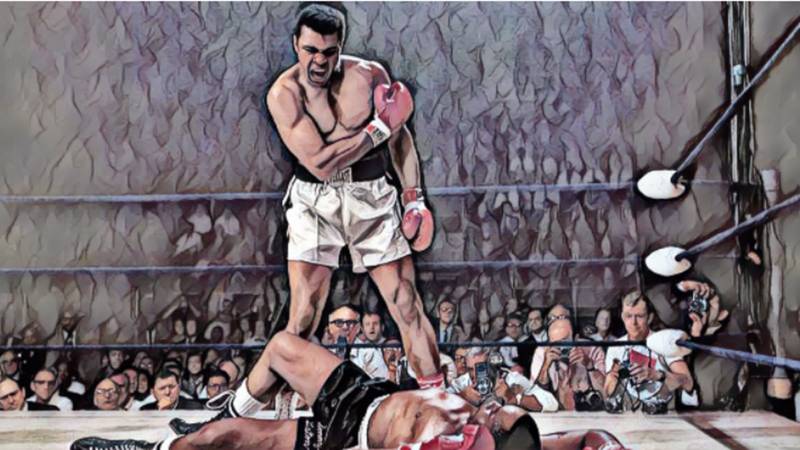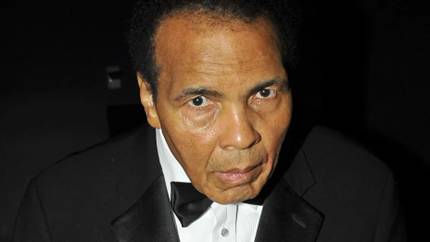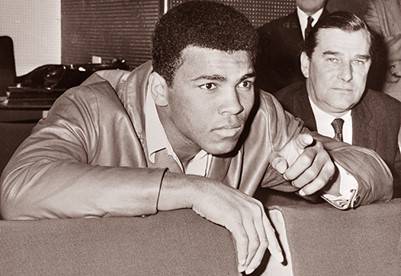
Few figures in the annals of sports history stand as tall or resonate as profoundly as Muhammad Ali. Born Cassius Clay on 17 January 1942, in Louisville, Kentucky, Ali was more than just a boxer; he was a force of nature, a cultural icon, and a symbol of resilience whose influence extended far beyond the confines of the boxing ring.
Growing up, Ali faced racial discrimination. His journey into the world of boxing began at a very young age, when a city policeman introduced him to boxing after Ali's bicycle was stolen. Driven by a combination of natural talent, unwavering determination, and an unshakable self-belief that would come to define his character, Ali quickly rose to prominence. He won the Olympic gold medal in boxing at the age of 18 in the light heavyweight division. This marked the beginning of a legendary career and introduced the world to an electrifying talent that captured the imagination of sports fans everywhere.
Ali's exceptional athletic ability was not the only thing that made him stand out. He had a captivating personality that easily drew people to him. His charisma, wit, and charm were unmatched and went beyond the sport of boxing. He was not simply a fighter, but also a poet, an entertainer, and a provocateur whose words continued to resonate long after the final bell had rung.
"Float like a butterfly, sting like a bee" - this famous phrase not only described his boxing style but also his life philosophy. Ali's boxing technique was unique and characterized by lightning-fast movements, mesmerizing footwork, and the ability to outsmart his opponents in the ring. His fights against legendary boxers such as Sonny Liston, Joe Frazier, and George Foreman were not just sporting events; they were spectacles that captured the attention of the entire world.

However, Ali's impact stretches far beyond his accomplishments in the ring. He took a stand against the Vietnam War by refusing to be drafted, citing religious and moral reasons. This resulted in a chaotic period in which he was stripped of his heavyweight title and was banned from boxing for three years during the peak of his career. Nevertheless, he was willing to make the sacrifice to fight injustice, which helped him to become more than just a sportsman.
Ali was not only a legendary boxer but also an inspiring symbol of resistance against racial inequality and a source of hope for those fighting for civil rights. His unwavering commitment to his beliefs turned him into a global icon, admired not only for his boxing achievements but also for his advocacy for justice and equality.
Throughout his boxing journey, Ali confronted obstacles that extended beyond the ring. The physical toll of his battles inside the ropes became evident with the onset of Parkinson's disease, a condition believed to be caused by the years of hits he took during his career. Nevertheless, Ali refused to be discouraged, and he continued to use his influence to advocate for peace, unity, and humanitarian causes around the world.
Muhammad Ali's legacy has left an indelible impact that still resonates today. His influence can be observed in the multitude of athletes who have followed in his footsteps, using their platforms to advocate for social causes. He continues to inspire those who stand up against oppression, discrimination, and injustice, personifying the spirit of resilience and fortitude.
He was not only a legendary boxer of his era, but he also became a worldwide icon whose influence has lasted through the generations. His unbreakable spirit, fearless bravery, and unwavering dedication to justice guarantee that his name will be forever remembered in the hearts and minds of people across the globe.

As we reflect on Muhammad Ali's life and legacy, we are reminded not only of his athletic achievements but also of the lasting impact of a man who dared to be more than just a champion in the ring. Muhammad Ali was, and still is, a symbol of hope, courage, and the boundless potential of the human spirit.

